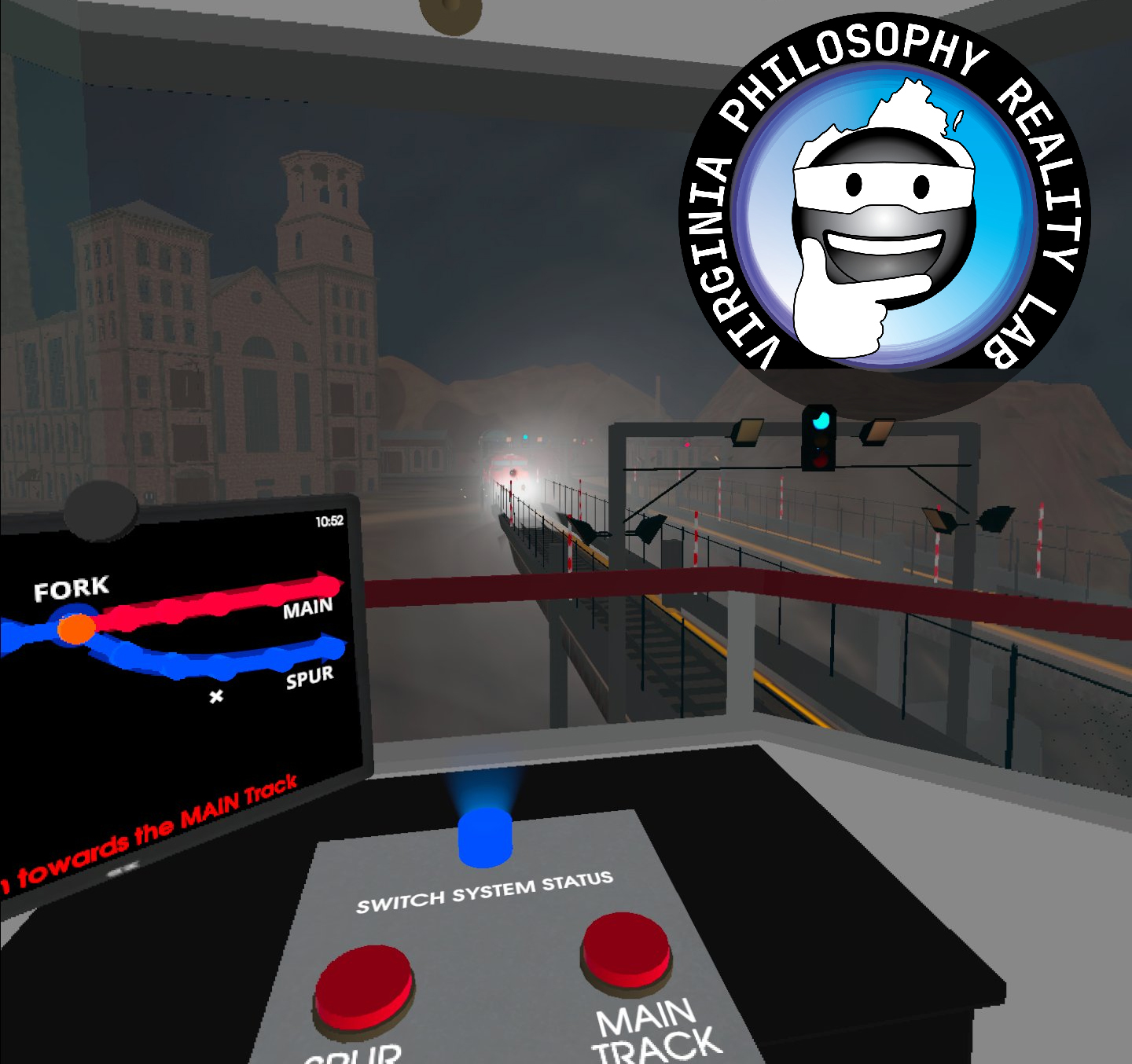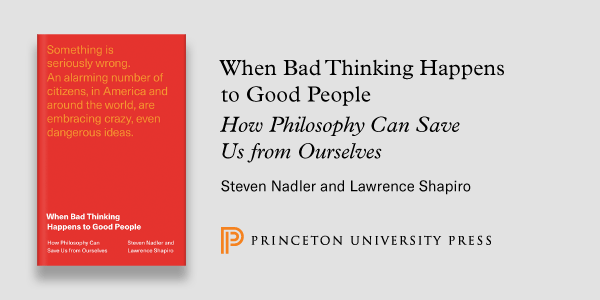Philosophy and Extended Reality Technologies
What can extended reality (XR) technologies, such as virtual reality (VR) and augmented reality (AR) bring to the study of philosophy?

One research group, the Virginia Philosophy Reality Lab (VPRL) at Old Dominion University is working on this question, developing tools for it and planning events to share what they’ve learned. Andrew Kissel is a philosopher involved in the project, and I asked him to share some information about it. He writes:
The Virginia Philosophy Reality Lab is an interdisciplinary coalition of educators and researchers at Old Dominion University in Norfolk, Virginia, that explores philosophical issues through extended reality (XR) technologies. XR technologies provide novel and immersive ways to experience time-tested philosophical ideas. With the help of an NEH Digital Humanities Advancement Grant, the VPRL is currently developing virtual reality modules on the basis of philosophical thought experiments to be used as educational tools in the classroom and research tools for experimental studies. Our first module is a VR version of the trolley problem, which is the basis for an empirical study currently in progress.
Core to our mission is the idea that the affordances provided by XR technologies should be as accessible as possible. This mission informs our design decisions, as well as their open approach to software development and research sharing. In December, the VPRL will host a workshop on how other philosophers, educators, and researchers, can begin to develop their own approach to doing philosophy in XR, using some of the tools developed by the VPRL.
If you’re doing philosophy-related work with XR technologies, or philosophical work about XR technologies, let us know about it in the comments.
And if you have an Oculus VR headset (and are at least 18 years old), you can take part in the module Dr. Kissel mentioned above. Data collected from responses to the scenarios presented in it, he says, “will inform new behavioral and social models of moral decision making” and may “help improve decision making modeling for diverse applications from self-driving cars to robotics and AI networks.” The module takes about 15 minutes. There are some more details about it here and you can try it here.



My book on the aesthetics of VR is out at the end of the month (with Routledge). It takes an analytic aesthetic approach that treats VR as a kind of egocentric interactive picturing, considers its varied fictive, documentary and transparent uses, and its apparent special realism. I also argue the common metaphysical accounts of VR are largely a distraction from the medium itself. I hadn’t considered this philosophical use but I think my account might be useful in that context. Here a link to the book with the intro accessible:
https://www.taylorfrancis.com/books/mono/10.4324/9781003107644/aesthetics-virtual-reality-grant-tavinor?fbclid=IwAR3Do4VqLCkew0PzmmctyHDTSMfFSyHgZCrvuLpbF7ksx-aDuJi2kpD2jIk
I’m really excited about this book Grant!
Really looking forward to this!
Call me old fashioned, but I’m not entirely sure all of these ‘extended reality’ technologies should be celebrated or embraced. Let’s look at the facts. Kids these days are almost entirely consumed already by their phones, and that surely can’t be healthy. By bringing in these ‘extended reality’ gizmos, we’re likely just facilitating a further (and I dare say dangerous!) detachment from reality.
I think we should be firmly grounded in reality – and I just don’t see these ‘virtual realities’ contributing to anything but confusion, and eventually potentially moral and intellectual chaos.
I think it’s fair to have some healthy skepticism of new technologies. I don’t share your concerns, but I was also raised playing video games and think I turned out okay.
I’ve found the XR experiences to be really useful in pedagogical contexts because they help address many of the questions students have in their first experiences with thought experiments. For example, in the case of the trolley problem, many of my students say something like, “I’d pull the switch at the last second and save all 6 lives.” While this is a laudable goal, it’s not realistic in the scenario, and avoids what I’m hoping the students get out of considering the case. Namely, I want them to reflect on their own values and perhaps uncover something about their current (or potential) moral commitments, in order to scrutinize them later in the class. By using XR, students can immediately understand why they can’t just pull the switch to save all 6. And they can see why the people don’t just step off the tracks to save themselves. Filling in these details for students helps them to focus on the moral concepts that I, as a teacher, am hoping to get them to see.
And of course, this is not meant to be a substitute for other philosophical methods. But I think it can be a good thing to add more weapons to our arsenal. 🙂
I’ve been doing a lot of hands-on work with VR for the last five years or so, mostly on my own. This work is usually either related to the philosophy of perception, the concepts of ‘immersion’ and ‘sense of presence’, or the value we assign to virtual acts. I find XR technologies great. They offer a much more accessible means of experimenting with the first-person point of view. You can see two short videos of works in progress here: https://youtu.be/PkWxjIcCPDY and here: https://youtu.be/iUraKTek-pM . In the first I’ve built various perceptual illusions in VR for an educational game, in the second a VR avatar that should eventually be able to do (almost) everything the player can. You can see more on my website or the youtube channel.
The intersection of philosophy and virtual reality is really exciting, not in the least because of the freedom it brings to creating digital environment for hypothesis testing!
I’ve written two blogs in the last few years on the topic:
And a paper where I proposed a way to study mnemonics through VR: Peeters, A., & Segundo-Ortin, M. (2019). Misplacing memories? An enactive approach to the virtual memory palace. Consciousness and Cognition, 76, 102834.
The paper actually forms the basis for a proposal I’m working on, to translate these ideas into an educational setting. The study of affordances plays a big role in this.
It’s too bad that an Oculus headset is required to check out the work described in the blog (and on a more general note, it’s a shame that there are so many walled-gardens in VR-work, even though the domain is already quite niche). Any plans to extend it to more general framework, so that those of us with only access to a Vive or Index or otherwise can check it out?
We’re working on porting it to the Vive right now. We also have long term plans to make a WebGL version. While it won’t have the same VR benefits, we think it will help give others without headsets an idea of what we’re trying to achieve here.